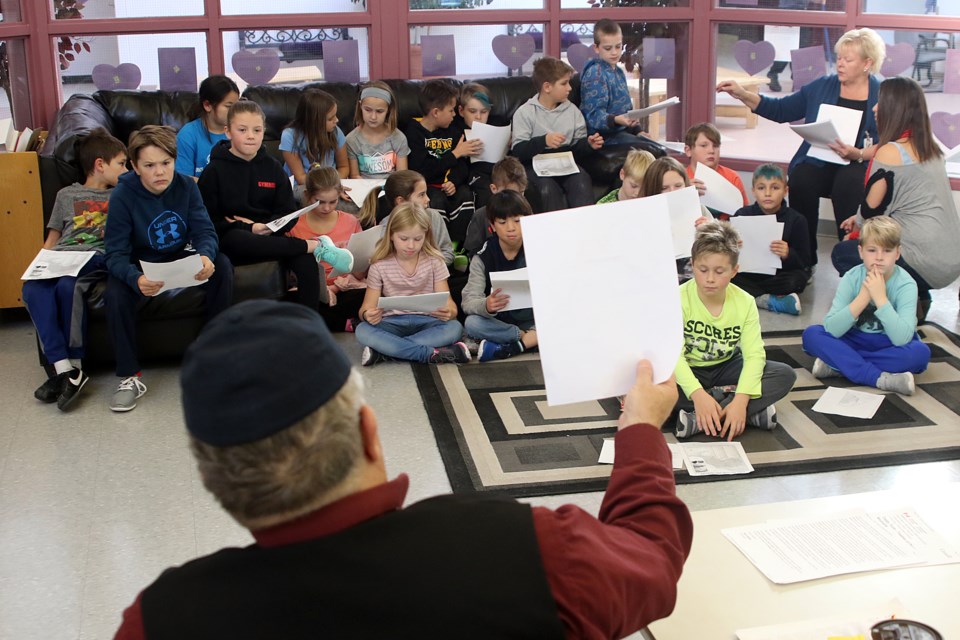THUNDER BAY – Ignorance of what’s included in treaties between the country’s Indigenous people and the federal government has long fuelled poor relations between Native and non-Natives.
On Monday, students at Nor’Wester View Public School took steps to alleviate their lack of knowledge of the relationship between the two sides, meeting with a local elder, who helped verse the youngsters on how the treaties came to be and for what they stand.
Elder Eugene Michon said his goal was to explain to the students what a treaty is and how it affects the lives of Canada’s Indigenous population.
“I try to explain to them how the treaty works, why the treaties are there and how the Indian Act has rolled into the treaty process,” Michon said.
“The two things are completely different. My job is to try to keep the younger people informed – or get them informed – as to why this is all happening.”
As a Metis member of Fort William First Nation, Michon lives under the Robinson-Superior Treaty, which was signed in 1850 and allowed settlers to share the land with neighbouring First Nations in what is today Northwestern Ontario.
Under terms of the treaty, First Nations people were guaranteed hunting and fishing rights and set aside reserve lands for each community. It also provides annuity payments, originally $2 per band member, an amount that doubled in 1874.
Michon said the more informed people are, the better relations will become.
“It all kind of rolls into the myths that people have toward Native people, not understanding. I use the word ignorant – not as a bad word, but as a word of not knowing. If they don’t know what it’s about, that’s when they start making silly accusations and stuff toward Indians,” Michon said.
“And it all rolls into prejudices and that sort of thing. I think it’s important if we get them young and try to explain to them what the treaty is, why it’s there and how it affects our lives and their lives because they’re the other half of the treaty.”
Ten-year-old Kingston Golding agreed it’s important for everyone to know about the treaties Canada has signed with its First People.
“You should learn about it and it’s important to know what’s going on in the city that you live in,” the Grade 5 student said after meeting with Michon.
Classmate Cayden Pike didn’t know much about the treaty process heading into their session with Michon, but said his eyes were opened a bit.
“You actually get to know what they went through,” he said.
Treaty Week will be celebrated until Nov. 10.
